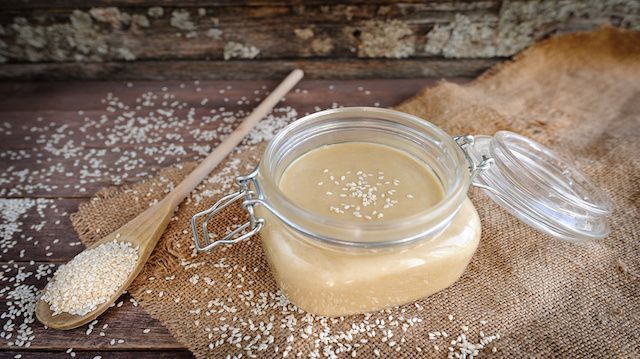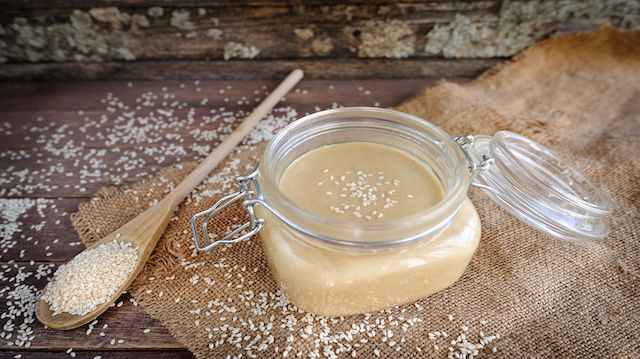
When you think of nutrient-rich superfoods, certain sources come to mind. From kale to kefir, hemp seeds to blueberries, we have become familiar with these beneficial foods. What we consider to be the “norm” in terms of a healthy diet is only the tip of the iceberg when it comes to foods that offer immense nutritional value.
While studying various food ingredients, we can break them down into vitamins, minerals, amino acids, healthy fats, antioxidants, and more. Opening our horizons to exotic foods can help to ensure that our nutritional needs are met as we embark on new culinary experiences. There’s a whole other world out there offering new, exotic foods!
The following seven ingredients are a must in terms of trying new, exotic foods.
Maca
Gaining popularity in the Western world, maca is commonly found in powdered form. This root is found in the mountains of Peru, often consumed as a vegetable and used for its medicinal properties. Packed with B-complex vitamins, vitamin C, and E, as well as iron, magnesium, zinc, calcium, protein, fatty acids, and more, maca benefits a wide range of internal and external functions.
Maca is also gaining a reputation as an effective hormone balancer; this root is especially beneficial in terms of mood and sexual health. Maca powder compliments toasty and nutty flavors and can be used in a wide variety of recipes. Whether you like to enjoy maca tea, incorporate the powder into your morning oatmeal, or add it to a dark chocolate dessert, the beneficial possibilities of this health food are limitless.
Acai
This ancient fruit is native to South and Central America. It offers high concentrations of antioxidants, polyphenols and phytochemicals — compounds that target the aging process. Laboratory studies have reported that acai berries have anticancer and anti-inflammatory effects, as well.
Study: The acai flavonoid velutin is a potent anti-inflammatory agent
Rich in potassium, calcium, iron, magnesium, fiber, vitamin A, and heart-healthy fats, this berry has been used for weight loss, skin health, digestive support, enhanced energy levels, and more.
Chayote
It looks like a wrinkly pear, but chayote is actually a gourd that’s often eaten raw in salads or cooked in a variety of dishes. The majority of chayote found in the United States is shipped from Veracruz, Mexico, but this edible plant is also grown in a number of other Mesoamerican countries, including Costa Rica and Belize.
Based on its low-calorie and high-fiber content, chayote is known to support a healthy weight, lower symptoms of hypertension, and aid digestion. Offering high concentrations of folate, as well as various other vitamins and minerals, this plant aids in female fertility, cancer prevention, and enhanced healing.
Tahini
If you make your own hummus, you have more than likely encountered this delicious and nutrient-rich paste. Native to the Middle East, tahini is simply a paste that is made from ground sesame seeds. It’s a highly versatile ingredient that offers complete protein, healthy fats, B-complex vitamins, highly alkaline minerals, and more.
This paste is a delicious ingredient in stir-fries and dressings, and can also be incorporated into protein balls. Tahini promotes weight loss and liver detoxification, prevents anemia, encourages cell growth, and is a higher source of protein than most nuts. This is a great ingredient for both vegetarians and vegans who are lacking protein in their diet.
Japanese persimmon (Diospyros kaki)
Although there are various species of persimmon, one of the most popular throughout the world is Diospyros kaki. Resembling a tomato, this fruit is actually a berry. Offering a wide range of vitamins, minerals, phytochemicals, antioxidants, and flavonoids, this fruit provides plenty of health benefits.
The Japanese persimmon has been used in traditional medicine to treat angina, hypertension and inflammation. More recently, studies have reported that it offers potent anticancer and antimicrobial properties. In fact, studies have shown that flavonoids in persimmons are able to kill breast cancer cells without harming healthy cells.
Kukicha green tea
 Also known as twig tea, this Japanese tea is prepared using various stems and stalks which have been steamed and dried. Not only does it offer plenty of nutrients, but this tea provides two and a half times more vitamin C than oranges and six times more calcium than cow’s milk. To brew your own, all you need is boiled water, one tablespoon of Kukicha twigs, and optional lemon.
Also known as twig tea, this Japanese tea is prepared using various stems and stalks which have been steamed and dried. Not only does it offer plenty of nutrients, but this tea provides two and a half times more vitamin C than oranges and six times more calcium than cow’s milk. To brew your own, all you need is boiled water, one tablespoon of Kukicha twigs, and optional lemon.
Farro
This ancient grain has been found in Egyptian tombs, and has fed Italians for centuries. Low in calories and fat, yet high in fiber and protein, farro is an excellent substitute for other grains. Providing the body with complex carbohydrates, farro helps regulate blood glucose levels and supports overall immune function. Consume as a side dish or use it in breads, soups, and salads.
The next time you’re feeling adventurous and want to step outside of your culinary comfort zone, incorporate the seven foods listed above. By trying new foods and becoming more aware of health foods from different cultures, you will have the ability to experiment with various flavors and textures, while promoting positive health.
—The Alternative Daily
Sources:
Braun, R. (2015). 7 Top Health Benefits of Maca. VegKitchen. Retrieved from
http://www.vegkitchen.com/nutrition/7-top-health-benefits-of-maca/
Hughes, R. What Are the Benefits of Chayote? SF Gate. Retrieved from
http://healthyeating.sfgate.com/benefits-chayote-7733.html
Rowe, E and Foxworth, T. Ingredient of the Month. Clemson University. Retrieved from
https://www.clemson.edu/cafls/cuchefs/files/farro.pdf
Sly, B. Top 10 Exotic Superfoods. Breaking Muscle. Retrieved from
http://breakingmuscle.com/nutrition/top-10-exotic-superfoods
Uren, M. (2012). 10 Reasons to Eat Tahini. MindBodyGreen. Retrieved from
http://www.mindbodygreen.com/0-6997/10-Reasons-to-Eat-Tahini.html

